On Thursday, February 27, the Council for Affordable Health Coverage held its sixth policy summit – this year’s theme: health policy versus politics.

Joel White, President of CAHC, welcomed everyone to the Grand Ballroom of the Willard InterContinental in downtown Washington, DC.
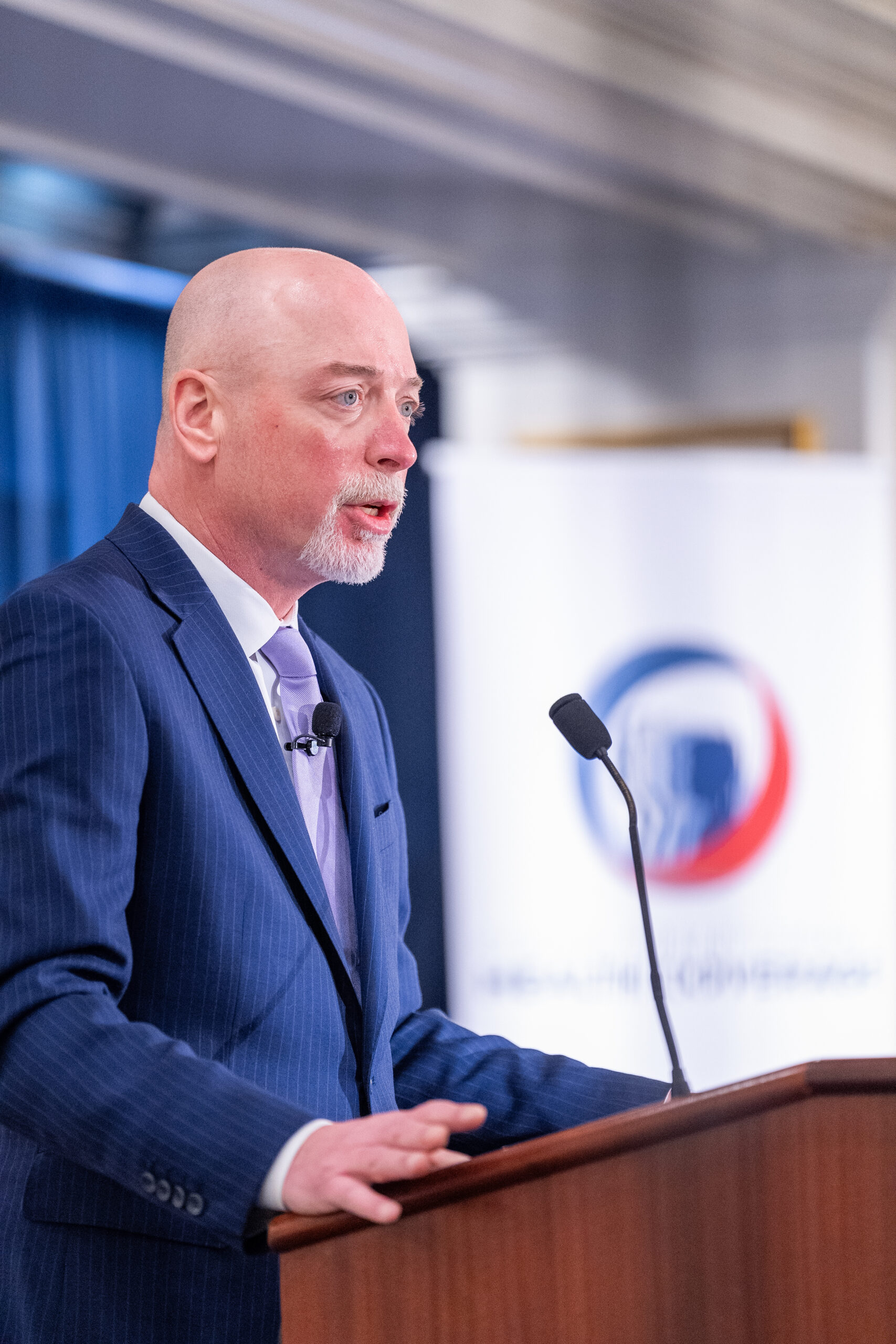
Joel shared CAHC’s priorities for the year:
1. lowering health costs
2. expanding private market coverage options
3. limiting the role of government
He also discussed the opportunities Congress has to make real change that will lower healthcare costs, including repealing the Inflation Reduction Act.
Chris Jennings, president and founder of Jennings Policy Strategies, joined Joel on stage for a bipartisan discussion about what we can expect from both parties now that there is a new administration.
Jennings said that we can expect Courts to scrutinize regulatory overreach and that Medicaid budget cuts (~$500B) present an opportunity for Democrats to engage strongly. Both Joel and Jennings agreed that there is a bipartisan interest in cost containment, market consolidation, and competition.
Other areas for bipartisan collaboration: transparency and competition in healthcare, but Jennings cautioned that health care could be the wedge that Democrats use to regain their voter trust. Jennings also highlighted that Democrats can leverage budget negotiations and government shutdown risks.
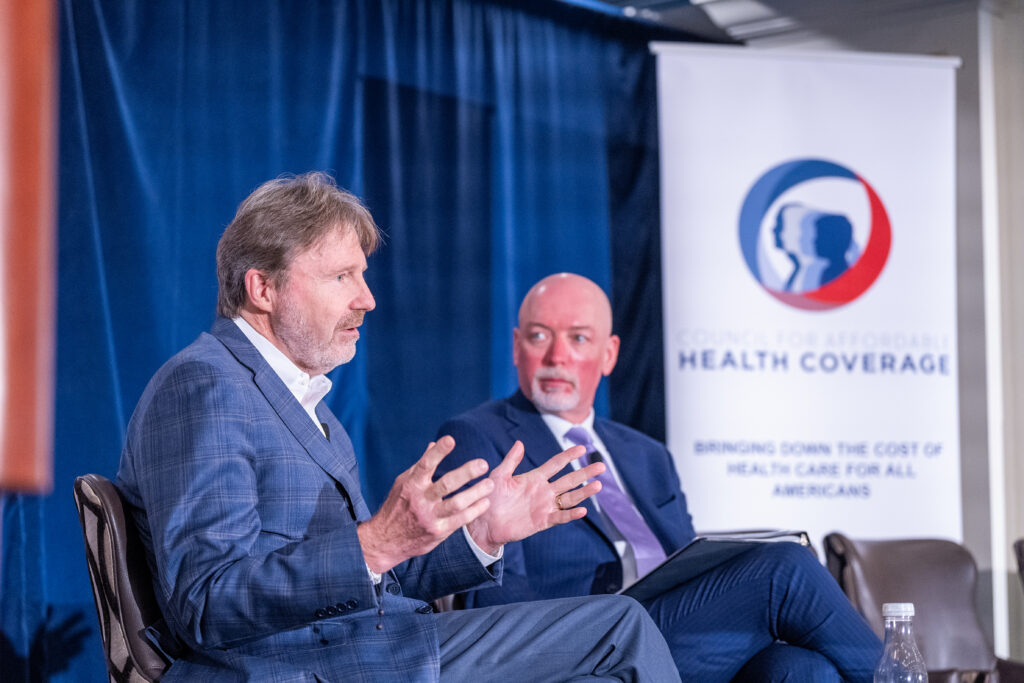

Joining Joel from his office on Capitol Hill, Congressman Jake Auchincloss (D-MA-4) video-conferenced in to discuss his focus for this Congress.
He emphasized that healthcare debates must shift from coverage expansion to cost containment, noting that despite Democrats’ success in expanding coverage, affordability remains voters’ top health concern.
Rep. Auchincloss also highlighted areas of bipartisan consensus, including improving the Part D market, that he plans to focus on in Congress this year.
Congressman Aaron Bean (R-FL-4) recorded a video for summit attendees about his work on the DOGE Caucus.
Brett Meeks, Vice President of Horizon Government Affairs, then sat down with a bipartisan panel of Hill staffers to discuss the ongoing budget process, where healthcare fits into the conversation, and opportunities for bipartisan engagement.
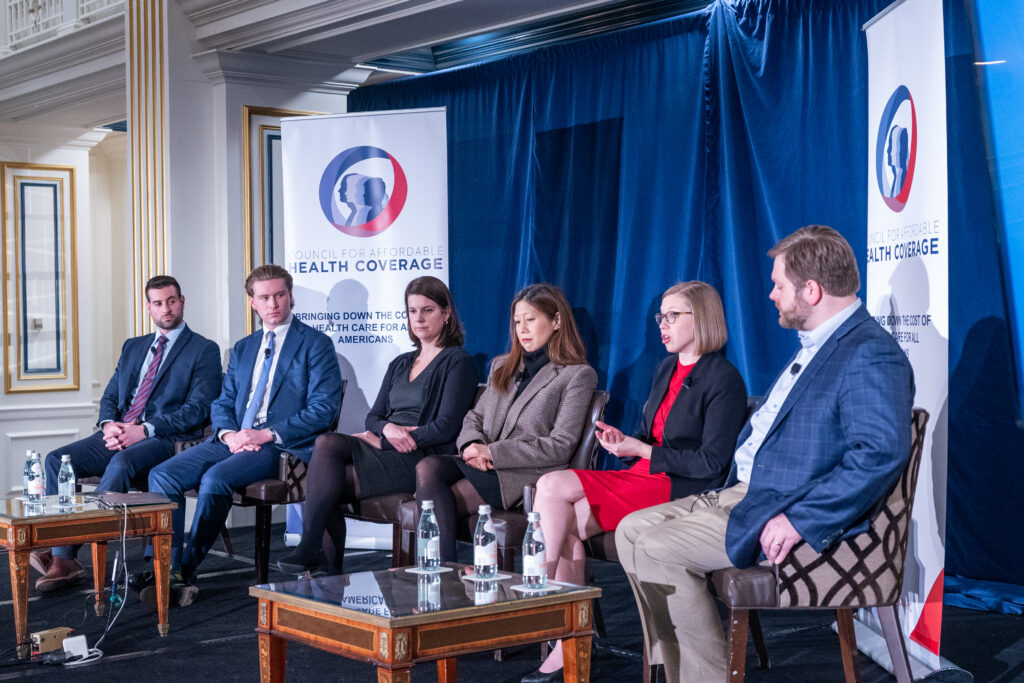

The day’s second panel shifted our focus to how the Administration can improve healthcare through regulatory action.
We heard the important frontline perspective from Dr. David Levine, who discussed provider challenges, and the industry perspective from Megan Carr (Solventum) and Lisa Thompson Harrison (Cencora). Megan focused on improving quality reporting measures while reducing costs, and Lisa provided invaluable insights on physician reimbursement challenges.
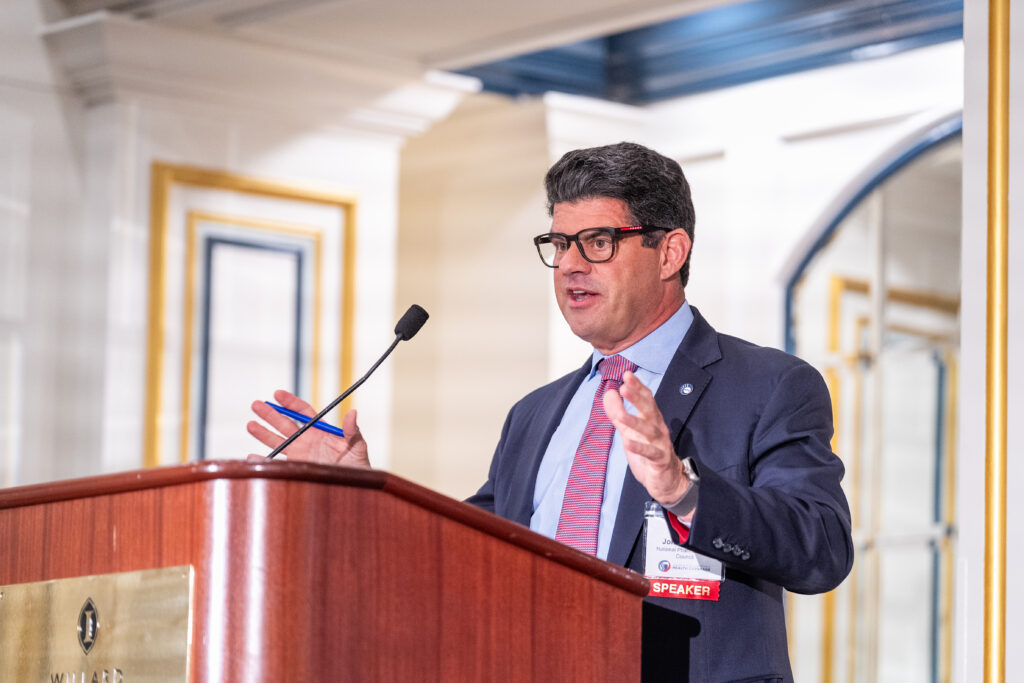
John O’Brien, President and CEO of the National Pharmaceutical Council, gave a spotlight presentation on the Inflation Reduction Act’s impact on Health.
John’s analysis of the IRA’s potential effects on drug innovation and patient access highlighted crucial considerations for policymakers, particularly on how these policies affect various stakeholders across the healthcare system and the challenges they present for long-term research investment.
The last panel of the day continued the focus of John’s spotlight by discussing what’s next for patients, plans, and innovators in the prescription drug space. Gordon Lavigne, CEO of the Schizophrenia & Psychosis Action Alliance, shared his perspective on how policies affect patients with schizophrenia and the critical concerns about treatment access and innovation for vulnerable populations.

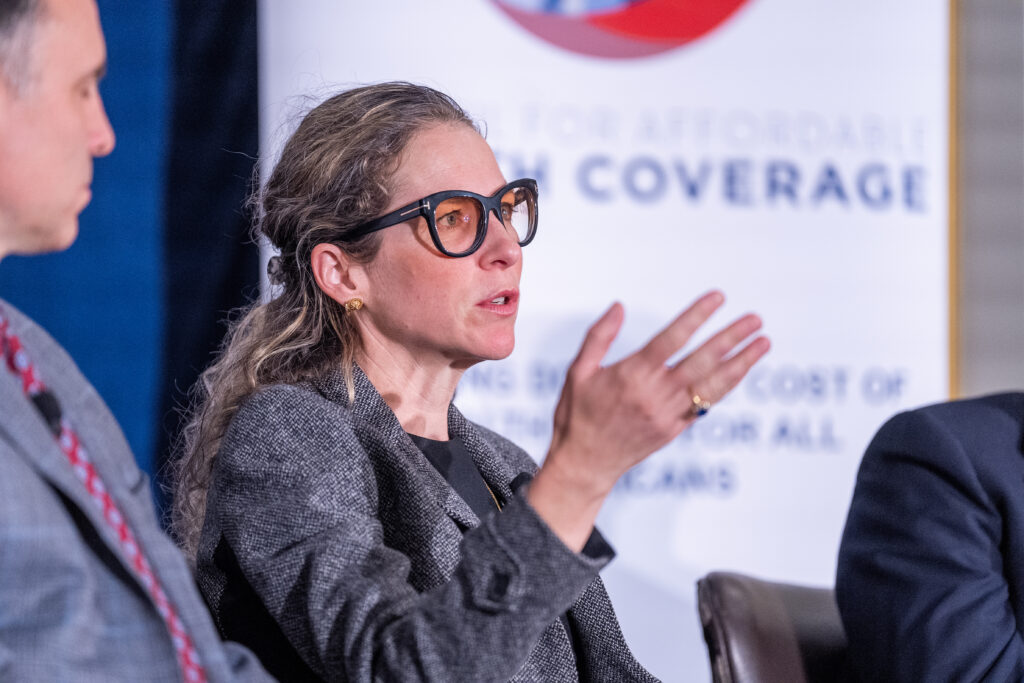
Kirsten Axelsen, a Visiting Research Fellow at the American Enterprise Institute, discussed how the IRA impacts the marketplace, especially regarding formulary management and the drug selection process.
Ryan Long, Senior Research Fellow at the Paragon Institute, shared his observations about pricing disparities, federal discounts, and the political nature of the drug pricing debate.
Congressman Brett Guthrie (R-KY-2), Chairman of the House Energy and Commerce Committee, also sent a video to summit attendees. He shared his focus for this Congress.
Closing out the day we had the opportunity to hear from Dr. Doris Taylor, CEO of Organamet Bio, who bioengineered the first beating human heart.
Dr. Taylor left a lasting impact on our audience as she shared her insights into the future of regenerative therapies and the importance of policymakers to work towards policies that foster innovation while ensuring affordability and accessibility.
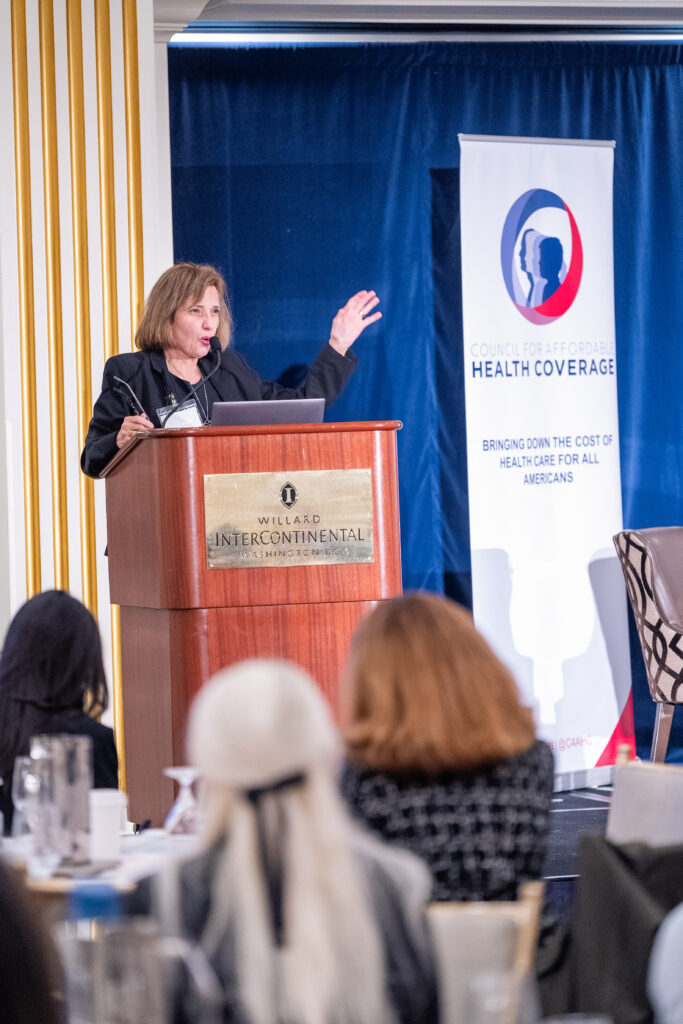
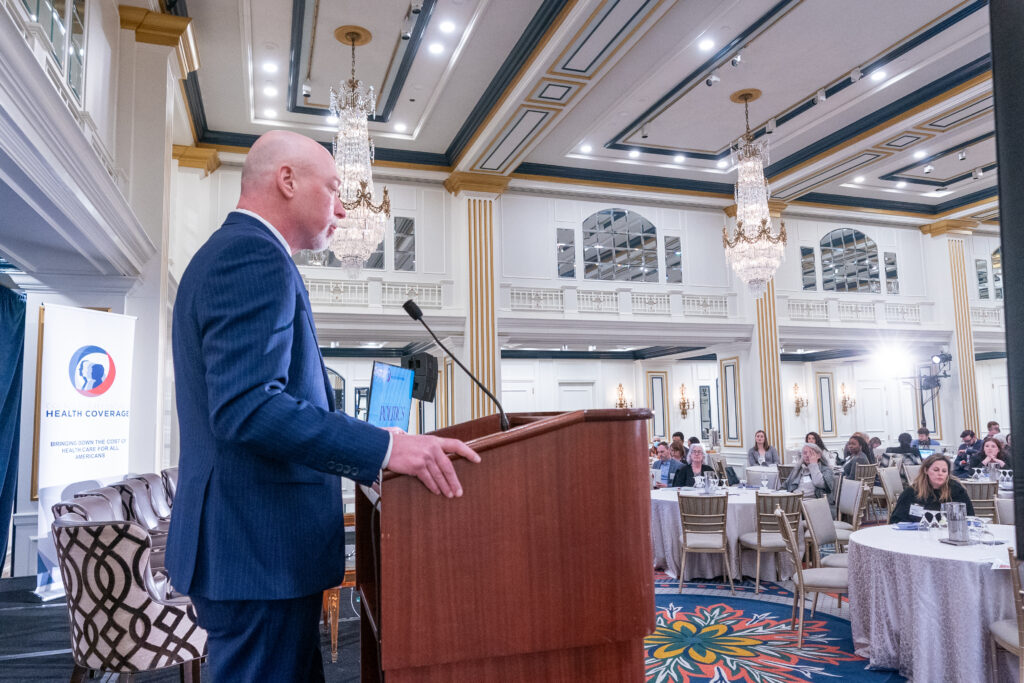
Joel ended the summit highlighting common themes echoed throughout the day, including rising health costs, limited access to care, and reduced investment in the research and development of new treatments. He spoke about the opportunities and policies in front of Congress that could help address these issues and how CAHC can help.
Thank you to everyone who attended this year’s summit.
If you have questions about the summit or would like to be a sponsor or speaker at the next one, contact Sloane Salzburg.
Conference materials:
The Number One Health Care Concern – Affordability
IRA Impact on Medicare Part D and Medicare Advantage
Affordability Solutions for the Health of America